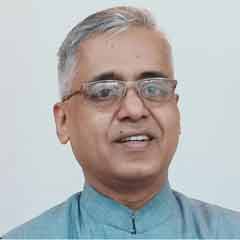The Prophet’s birthday and a re-reading of Arif Mohammed Khan’s 'Text and Context'

Mail This Article
By some quirk of history, it is from the continent of Asia that all the major contemporary religions of the world like Christianity, Islam, Hinduism, Buddhism, Jainism, Sikhism, Judaism and Zoroastrianism have sprung up even though adherents of these faiths are spread across all other continents as well now.
Apart from the sameness of the spatial origin, the great prophets, founders and the ancient proponents of these religions, share a common trait of identification with “the least, the lost and the last” in society, a radical rebellion against the traditions of their times almost in a revolutionary style and a lofty advocacy of the values of compassion, mercy and coexistence.
In a deeper, philosophical sense, all of them preached also, only the Oneness of God and of man, which can/should be seen as the common bases of all these theologies.
Prophet Muhammed whose birthday is being celebrated today, also rebelled against the established order of his times, integrated people following different creeds into a common faith and unleashed a wave of spirituality which has been riding high on the idea of the brotherhood of man.
Islam, the religion that the Prophet founded is a growing religion with adherents who are strongly wedded to keeping the faith.
After nearly 1400 years of his advent, as we look back, what then are the lessons from this great Messenger that mankind should collectively uphold ? What are the enduring features of his legacy that should illumine our lives ? How should other streams of theology relate to Islam and Islam, in turn to others, so that there is concord and coexistence ?
As we grapple with these questions, a little bit of the extraordinary story of the Prophet will help.
Having lost his father when his mother was six months pregnant with him, Muhammed was brought up mostly by a foster mother, Halima. He lost his mother too at age six. His story from then onwards, right through his first revelation at age 40 on Mount Hira, is a dramatic and enchantingly vibrant one, much like that of the other revered figures of the pan-Asian religious heritage like Christ and Krishna.
Like them, his rise was from relative anonymity to universal acceptance, mainly by making the powerless feel empowered, through a transmission of uplifting and unifying messages.
In our own times too the real message of Prophet Muhammed ought to be reiterated so that followers of other religions understand and appreciate the real import of Islam. And these iterations have to come from within Islam.
For us Keralites, a re-reading of our Governor Sri Arif Mohammed Khan’s book “Text and Context —Quran and contemporary challenges” will be an edifying experience on the Prophet’s birthday. In it, one can discern answers to most of the foundational questions that inter-faith dialogue and discourse would throw up.
A comprehensive understanding of Islamic philosophy and a passionate attempt to elucidate the essence of this great religion underlie most of the selection of the author’s essays.
Divided into various chapters like Education and Knowledge, Islam, Muslim Personal Law and Muslim Society, Sri Arif Mohammed Khan’s book ( first published in 2010) should be essential reading for everyone in a multi-religious State like Kerala where religions have co-existed for centuries in a fine balance. But a deeper appreciation of congruency needs to be constantly nurtured.
Re-reading it today, what struck me as most relevant is his robust advocacy of Faith as a Unifying force. Quoting Abul Kalam Azad’s commentary of the Holy Quran ( Tarjumanul Quran), Sri Khan says: “ Truth is one and the same everywhere, but it has different dresses. Our misfortune is that the world worships terms and not their meaning. Thus, though all may worship the same truth, they will quarrel on account of differences of terms”.
Again, citing verses from the Holy Book, he says that “the diversity of belief and its various expressions in no way defy the divine will and purpose. Instead the Quran says, ‘For every people there is a direction to which they face (in their prayers). So hasten towards all that is good.(2.148)’.
Wholesome, exhaustive and logical, “Text and Context” as the title itself implies is an attempt at identifying and projecting the common threads in our belief systems. Those who want to look only for differences and divergences will succeed in finding them but our attempt should be to focus on the unifying strands. To me, his essays resonate strongly with the philosophy of Sree Narayana Guru’s view of the human race as nothing but one of a genus, without any differences at all.
In his Chicago Addresses, Swami Vivekananda said: “…if anybody dreams of the exclusive survival of his own religion and the destruction of the others, I pity him from the bottom of my heart, and point out to him that upon the banner of every religion will soon be written in spite of resistance: "Help and not fight," "Assimilation and not Destruction," "Harmony and Peace and not Dissension."
Re-reading the Kerala Governor’s scholarly compilation, on the birthday of Prophet Mohammed, one internalises the import of what Swami Vivekananda and Sree Narayana Guru said, more than a century ago, with a higher sensibility. And then we realise that both the text and the context are equally important in trying to understand all the great religions.
(S Adikesavan, a banker by profession, is a firm believer in inter-faith dialogue)


